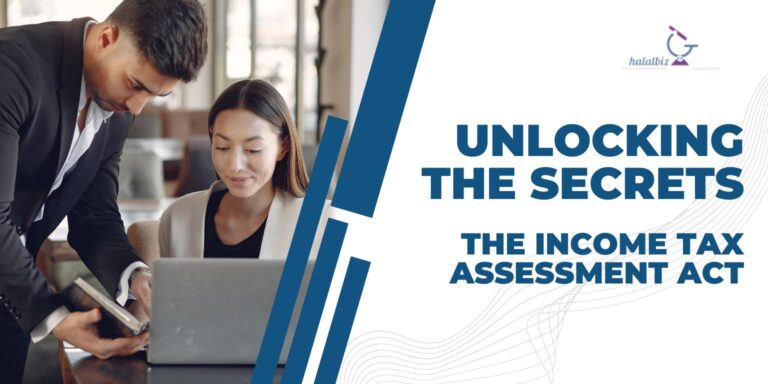Corporate tax planning is the process of designing and implementing strategies to minimize the tax liability of a business entity. It involves making use of the various provisions and deductions available under the tax laws to reduce the overall tax burden and increase the cash flow of the business.
Corporate tax planning is not only a legal obligation but also a smart business decision. By planning ahead, a business can save money, avoid penalties, comply with regulations, and achieve its financial goals.
However, corporate tax planning is not a one-size-fits-all solution. It depends on various factors such as the type, size, structure, location, and industry of the business, as well as the current and future tax scenarios. Therefore, it is important to consult a professional tax advisor who can help you design a customized tax plan that suits your specific needs and objectives.
Halalbizllc is a leading provider of corporate tax planning services in the United States. The company has a team of experienced tax professionals who can help businesses of all sizes to minimize their tax liability and comply with tax laws.
If you are a business in the United States, you should consider using corporate tax planning services in Halalbizllc. The company can help you to minimize your tax liability and comply with tax laws so that you can save money and avoid penalties.
Corporate tax planning strategies that can help you save money and reduce risk
Deferred Income
One of the simplest ways to reduce your taxable income for the current year is to defer some of your income to the next year. This can be done by delaying the billing or collection of payments from customers, postponing the recognition of revenue until certain conditions are met, or accelerating the payment of expenses that are deductible in the current year.
For example, if you are expecting a higher tax rate in the next year, you may want to defer some of your income to reduce your tax liability for the current year. However, if you are expecting a lower tax rate in the next year, you may want to recognize more income in the current year to take advantage of the lower rate.
Accelerated Income and Deductions
Another way to reduce your taxable income for the current year is to accelerate some of your income or deductions into the current year. This can be done by advancing the billing or collection of payments from customers, recognizing revenue earlier than usual, or delaying the payment of expenses that are deductible in the next year.
For example, if you are expecting a lower tax rate in the next year, you may want to accelerate some of your income or deductions into the current year to reduce your tax liability for the next year. However, if you are expecting a higher tax rate in the next year, you may want to defer some of your income or deductions to take advantage of the higher rate.

Tax Credits on Corporate Tax Planning
Tax credits are direct reductions of your tax liability that are available for certain activities or expenditures that benefit society or promote certain policy goals. Some of the common tax credits that businesses can claim include:
- Research and Development (R&D) Credit: This credit is available for businesses that incur qualified expenses for research and development activities that result in new or improved products, processes, or technologies.
- Work Opportunity Credit: This credit is available for businesses that hire employees from certain targeted groups that face barriers to employment, such as veterans, ex-felons, or disabled individuals.
- Energy Credit: This credit is available for businesses that invest in renewable energy sources or energy-efficient property or equipment.
- Foreign Tax Credit: This credit is available for businesses that pay taxes to foreign governments on income earned from foreign sources.
Deductions
Deductions are expenses that reduce your taxable income by lowering your gross income. Some of the common deductions that businesses can claim include:
- Depreciation: This deduction allows you to recover the cost of tangible property used in your business over its useful life.
- Interest: This deduction allows you to deduct the interest paid on loans or debts used for business purposes.
- Salaries and Wages: This deduction allows you to deduct the compensation paid to your employees for their services.
- Rent: This deduction allows you to deduct the rent paid for property used in your business.
- Travel and Entertainment: This deduction allows you to deduct 50% of the expenses incurred for business-related travel and entertainment, such as meals, lodging, transportation, or entertainment.
- Charitable Contributions: This deduction allows you to deduct up to 10% of your taxable income for donations made to qualified charitable organizations.
S Corporation Benefits
If your business is structured as a corporation, you may want to consider electing S corporation status. An S corporation is a pass-through entity that does not pay corporate income tax. Instead, its income and losses are passed through to its shareholders who report them on their personal tax returns.
By electing S corporation status, you can avoid the double taxation that occurs when a corporation pays corporate income tax and its shareholders pay personal income tax on the same income. You can also take advantage of the lower tax rates and deductions available for individuals, such as the qualified business income deduction, the capital gain rate, or the real estate deduction.
However, S corporation status also comes with certain limitations and requirements, such as the number and type of shareholders, the allocation of income and losses, and the payment of reasonable compensation to shareholders who are also employees. Therefore, you should consult a professional tax advisor before making this election.
Filing Returns
The final step of corporate tax planning is to file your tax returns accurately and timely. You should keep track of all your income and expenses, maintain proper records and documentation, and report all your transactions correctly. You should also be aware of the filing deadlines and payment obligations for federal, state, and local taxes.
If you need more time to prepare your tax returns, you can request an extension by filing Form 7004 for corporations or Form 4868 for individuals. However, an extension only gives you more time to file, not to pay. You still have to pay at least 90% of your estimated tax liability by the original due date to avoid penalties and interest.
If you are unsure about any aspect of your tax situation, you should seek professional help from a qualified tax advisor who can guide you through the process and help you avoid mistakes and audits.
Specific ways that Halalbizllc can help businesses with their corporate tax planning
- Helping businesses choose the right entity type: Halalbizllc can help businesses choose the right entity type for their specific circumstances. The type of entity that a business chooses can have a significant impact on its tax liability. For example, a C corporation is taxed separately from its owners, while an S corporation is taxed as a pass-through entity.
- Helping businesses take advantage of tax breaks and deductions: Halalbizllc can help businesses identify the tax breaks and deductions that they are eligible for. There are many different tax breaks and deductions available to businesses, and Halalbizllc can help businesses to maximize their benefits.
- Helping businesses structure their operations in a tax-efficient way: Halalbizllc can help businesses structure their operations in a way that minimizes taxes. There are many different ways to structure a business’s operations to minimize taxes, and Halalbizllc can help businesses to find the best way to structure their operations for their specific circumstances.
- Helping businesses file their tax returns accurately and on time: Halalbizllc can help businesses file their tax returns accurately and on time. Filing tax returns accurately and on time is essential for businesses to avoid penalties.
Conclusion
Corporate tax planning is an essential tool for business owners who want to save money and reduce risk. By planning ahead, you can take advantage of the various provisions and deductions available under the tax laws and optimize your tax liability. However, corporate tax planning is not a one-time event. It requires constant monitoring and adjustment to keep up with the changing tax scenarios and regulations. Therefore, you should consult a professional tax advisor who can help you design and implement a customized tax plan that suits your specific needs and objectives.
If you are a business in the United States, and you are looking for help with your corporate tax planning, then you should contact Halalbizllc. The company has a team of experienced tax professionals who can help you to minimize your tax liability and comply with tax laws.





